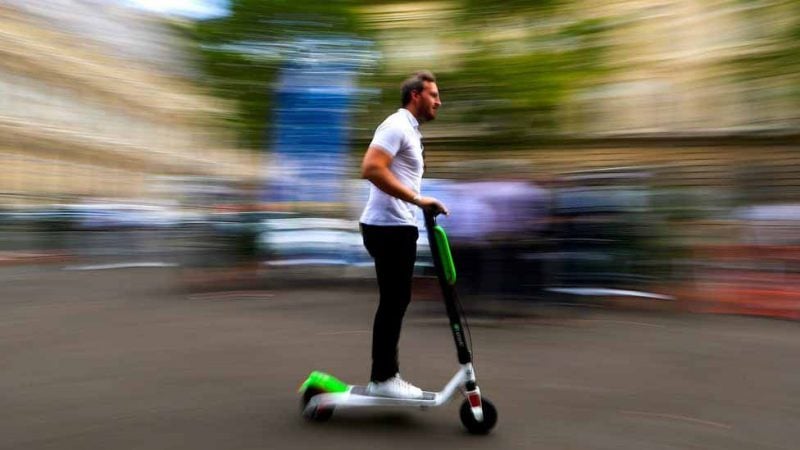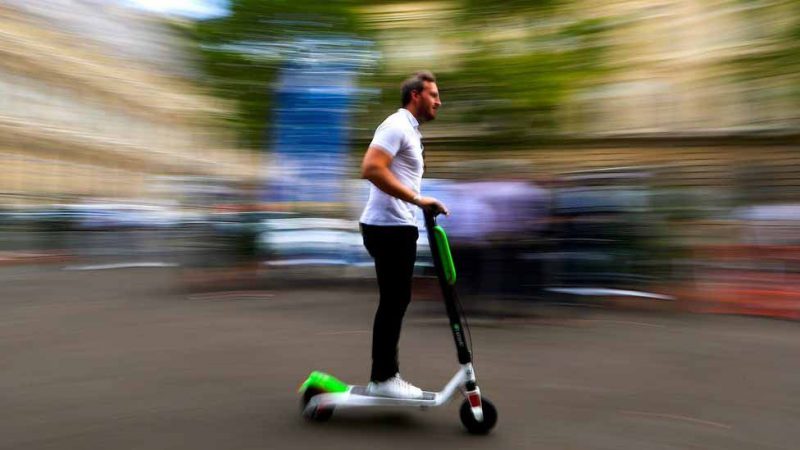Business Travelers Big on Food Delivery and Lime
Certify’s SpendSmart report digs into the details on how business travelers spend their dollars in the office and in the field
February 11, 2020

Certify has released its 2019 SpendSmart™ Year in Review Report, which highlights key data insights and trends in corporate travel spend, and identifies the most popular airline, meal, lodging, and transportation services among North American business travelers, based on more than 50 million receipts and expenses submitted by Certify users.
The report found that the food delivery category saw the fastest growth, seeing an 86 percent year-over-year increase in transactions. DoorDash overtook Grubhub as the most expensed food delivery service with 29.5 percent of all transactions, followed by Grubhub with 27.3 percent of transactions, Uber Eats with 25.6 percent, 12.3 percent for Postmates, and 5.3 percent for Seamless.
Seamless was the most expensive food delivery service in 2019, with an average receipt of $86.09 compared to $60.52 for Grubhub, $54.13 for DoorDash, $43.40 for Postmates, and $24.59 for Uber Eats. Seamless was also the highest-rated service, scoring 4.8 in Certify’s 5-star rating system, followed by Uber Eats at 4.6, and with DoorDash and Postmates tying for third place with 4.5-stars.
Scooter rentals saw a major increase in use, rising by 222 percent over 2019. Lime remained the most expensed service with 50.0 percent of all receipts/expenses compared to 42.1 percent for Bird, 3.9 percent for Skip, and 3.8 percent for Razor. Bird was the most expensive scooter service, with an average cost of $10.28, versus Skip at $8.83, Scoot at $8.73, Lime at $6.88, and Razor at $4.85. Skip was the top-rated scooter service in 2019, earning a perfect 5-star customer rating. Ride-hailing (including taxis) overtook meals as the most expensed category for the first time since 2015, with 17.5 percent of transactions. Meals were close behind with 16.8 percent of all transactions, at an average cost of $39.09. Airline travel was the third most popular category, with 13.1 percent of receipts. Average airfare expenses increased 11.1 percent in 2019 to $308.40.
Lyft remained slightly cheaper than Uber, with an average fare of $25.35 compared to $25.81. However, Lyft’s average fare increased by $0.85 over 2018, compared to a $0.07 decrease for Uber. Taxis were yet again the most expensive option, with an average fare of $34.55.
Other items of note from Certify’s 2019 SpendSmart Report:
• Uber was the most expensed vendor overall, taking 12.6 percent of all receipts.
• Uber also made the biggest jump on the list of most expensed vendors overall, increasing nearly 4 percent from 2017 to 2019.
• Starbucks was the most expensed food option in 2019, with 24.4 percent of transactions, and an average cost of $13.23.
• Chick-Fil-A was the highest-rated among the top five most popular restaurants, with 4.7 out of 5 stars.
• Marriott (16.8 percent) surpassed Hampton Inn (14.7 percent) as the most expensed lodging provider in 2019. Marriott was the most expensive of the five most expensed hotel chains, with an average per-stay cost of $307.47, and also the highest-rated at 4.5 out of 5 stars.
• Delta was the most expensed airline in 2019, earning 26.4 percent of all category transactions, followed closely by American Airlines with 25.9 percent.
• Southwest Airlines ranked as the top-rated airline, with an average user rating of 4.6 out of 5 stars.
• National Car Rental held the titles of both highest-rated and most expensed car rental company in 2019 with 36.8 percent of receipts and a 4.5 out of 5 star customer rating.
“It’s interesting to see the transition of many aspects of business travel away from traditional categories and vendors,” said Kenny Eon, general manager at Certify. “Ride-hailing services such as Uber and Lyft have now dominated for several years, and lodging services like Airbnb have also firmly entered the mainstream. With dockless scooter rentals up 222 percent over the year and food delivery transactions rising by 86 percent, it’s clear that business travelers place a major emphasis on convenience in all areas of their trip. As scooters are rapidly becoming a ubiquitous form of transport for business travelers, organizations need to ensure that they update their travel policies to avoid duty-of-care issues, such as providing guidelines on wearing helmets. CFOs and corporate travel leaders that have this kind of detailed insight into their employees’ spend can make faster, more informed decisions.”
Note: The average transaction prices for all car-related expenses analyzed by Certify may or may not include tips. Also, Certify does not have visibility into whether food delivery services were used by workers while traveling or from their offices.
Certify is part of Emburse, a global leader in expense management and AP automation solutions, with 4.5 million users in more than 120 countries.




